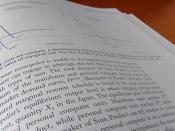The study of Law without the knowledge of other related social sciences i.e., Political theory, Sociology and Economics, etc, is incomplete. In any law curriculum the study of Economics and Law and their interaction is increasingly found necessary.
As Law influence Economics, Economics also influence Law. As a matter of fact Economics forms the basis of the study of Law. Economics reflects the socio-economic ethos of the country in particular and world in general. It becomes out of date and misleading if the Economic ethos change. But it was proved to be wrong by Dalton. The organisation, industrial structure and performance have changed in the thirty years. E.g.: policy goals, policy instrument, Economic institutions.
Economics derives its aims and objectives from the study of man and must derive at least a large part of its methodology from a study of Nature. Legal Economics is a vital part in understanding the interactional dimension of Law and Economics, i.e.,
how modern Economics can be used to illuminate a number of legal problems. It is not sufficiently realised that the economic analysis can aid our understanding of the Law and how economic factors limit and shape the operation of crime control and legal systems. Economic considerations have varied and widespread effects on the costs and benefits that prospective offenders may expect from crime, on decisions to litigate or to settle out to court, on the significance of legal costs the practical problems of legal administration and the provision of legal services. Law and legal policy help to determine the behaviour of the economy. There are extensive legal constraints on the allocation and the distribution of resources and on labour and housing markets.
The social functions of Law are broadly classified into three:
(1) Encouraging good behaviour and discouraging bad behaviour.
(2) Facilitating the...



Please
Dear cheathouse memebers,please express your views and suggestions
2 out of 2 people found this comment useful.